High net worth individuals approach investing differently than the average investor. Rather than chasing market trends or relying on standardized products, they focus on quality investments that can compound wealth over time while preserving capital through various market cycles.
Understanding High Net-Worth Investment Strategy
Two core principles drive successful high-net-worth investment strategies. First, achieving desirable long-term results with minimal risk. Second, maintaining independence from conventional thinking, as it often leads to mediocre outcomes.
At Avenue Investment Management, we’ve observed that wealthy investors understand the difference between true wealth management and simply gathering assets or selling products. They seek quality investments held for the long term, not speculative trading or standardized solutions.
Asset Allocation and Diversification
Defining Asset Types
Sophisticated investors look beyond traditional asset class labels to understand the underlying economic drivers of investments. They recognize that true diversification comes from owning assets with different risk factors and return characteristics, not just different names.
High-net-worth portfolios often include:
- Quality public equities with sustainable competitive advantages
- Strategic fixed income positions for stability and income
- Alternative investments selected for specific portfolio roles
- Cash reserves maintained for both protection and opportunity
Risk Management
Contrary to popular belief, wealthy investors aren’t simply aggressive risk-takers. They employ sophisticated risk management strategies that allow them to weather market volatility while maintaining growth exposure.
Specialized protection strategies like tail hedging provide specific downside protection during market corrections, allowing high net worth individuals to remain comfortably invested throughout entire market cycles. This approach proved particularly valuable during periods of significant market disruption, as highlighted in our analysis of inflation’s impact on investment markets.
Direct Investment in Private Equity
Many high net worth individuals allocate a portion of their portfolio to private equity investments, which can provide both diversification and potentially higher returns compared to public markets.
Active vs Passive Private Equity Investment
Private equity participation takes several forms, each with different levels of involvement:
- Direct investments where the investor takes an active role in company oversight
- Private equity funds that pool capital from multiple investors
- Co-investment opportunities alongside established private equity firms
While private investments can offer attractive returns, sophisticated investors maintain strict quality standards and valuation discipline. They recognize that private market opportunities must be evaluated based on fundamental business quality, not merely available access or exclusivity.
Real Estate
Real estate often constitutes a significant portion of high net worth portfolios, providing both income potential and inflation protection.
Commercial Real Estate
Commercial real estate investments offer income potential through long-term leases, often with inflation adjustments built in. Sophisticated investors focus on properties in strong locations with quality tenants, recognizing that property fundamentals matter more than short-term market trends.
Residential Real Estate
Beyond primary residences, high net worth individuals may invest in residential properties as income-producing assets or long-term appreciation plays. These investments are typically selected based on location quality, demographic trends, and supply constraints rather than speculative price movements.
Real Estate Investment Trusts (REITs)
REITs provide liquid exposure to real estate markets without direct property management responsibilities. Sophisticated investors select REITs based on underlying property quality, management expertise, and sustainable dividend policies rather than simply chasing yield.
Public Equity Markets
Stocks & Bonds
High net worth individuals approach public markets differently than average investors. Their equity investments focus on quality businesses with sustainable competitive advantages held for the long term, not on short-term trading. This approach aligns with our philosophy at Avenue, where we focus on buying high-quality businesses at reasonable prices.
In fixed income, wealthy investors build strategic bond portfolios designed for specific roles – whether capital preservation, income generation, or inflation protection. They understand that bonds serve different functions depending on the broader portfolio context and economic environment.
Hedge Funds
Contrary to popular perception, sophisticated high net worth investors approach hedge funds with careful discrimination, not blanket allocation. They focus on managers with clear, repeatable investment processes and proper alignment of interests rather than simply chasing recent performance or brand names.
The most discerning investors recognize that many hedge fund strategies are difficult to evaluate and may not justify their fee structures. They select hedge fund investments only when they offer genuine diversification or specialized expertise not available through more efficient vehicles.
ETFs
High net worth individuals often use ETFs strategically within their portfolios for specific exposure or tactical positioning. Rather than building entire portfolios from ETFs, they use these vehicles selectively where they offer efficiency advantages for particular market segments or temporary positioning.
Sophisticated investors look beyond basic index ETFs to understand the underlying methodology, holdings concentration, and potential risks during market stress scenarios.
Tax Strategies
For high net worth individuals, tax efficiency isn’t an afterthought – it’s integrated into the investment process. Tax and estate planning becomes increasingly important as wealth grows, with sophisticated strategies employed to preserve capital across generations.
Offshore Accounts
While often misunderstood, legitimate offshore structures can serve important roles in international diversification and business operations. Sophisticated investors work with qualified advisors to ensure these structures comply with all reporting requirements while providing appropriate diversification benefits.
It’s important to note that proper wealth management addresses international exposure through legal, transparent means – not through tax evasion schemes that create significant legal and reputational risks.
Tax-Deferred Accounts
High net worth individuals strategically utilize tax-advantaged accounts like RRSPs and TFSAs, recognizing their value even at higher wealth levels. They coordinate these accounts within their broader portfolio strategy, placing tax-inefficient investments in sheltered accounts while managing taxable accounts for optimal after-tax returns.
Strategic tax-loss harvesting, thoughtful asset location, and careful attention to realized gains allow sophisticated investors to significantly improve after-tax performance without sacrificing investment quality.
Building a Team of Advisors
High net worth individuals recognize the importance of working with qualified professionals who provide specialized expertise while maintaining alignment with client interests.
Wealth Managers and Financial Advisors
Sophisticated investors select wealth managers based on:
- True independence from product sales pressures
- Fiduciary responsibility to put clients first
- Verified track record across market cycles
- Transparent fee structures without hidden costs
They look for wealth managers who conduct independent research rather than following consensus views or relying on third-party recommendations. This independence allows for truly customized solutions rather than standardized products.
Legal & Tax Professionals
High net worth individuals build relationships with specialized legal and tax professionals who understand the complexities of significant wealth. These advisors work in coordination with wealth managers to ensure integrated strategies across investment, tax, and estate planning.
For clients with complex needs, family office structures provide comprehensive oversight across all aspects of wealth management. This integrated approach ensures consistent strategy execution and prevents the fragmentation that often occurs with multiple uncoordinated advisors.
Estate and Legacy Planning
Sophisticated investors recognize that wealth preservation extends beyond their lifetime. They develop comprehensive estate plans that efficiently transfer assets to future generations while reflecting their values and intentions.
This planning goes beyond basic wills and powers of attorney to include:
- Strategic trust structures that protect assets
- Philanthropy aligned with personal values
- Business succession planning
- Family governance frameworks
High net worth individuals often develop these plans decades before they’re needed, allowing for optimal structure implementation and family preparation.
Frequently Asked Questions
What minimum investment is required to invest like high net worth individuals?
While strategies vary, meaningful wealth management typically requires at least $750,000 in investable assets. This threshold allows for proper diversification, access to quality professional advice, and implementation of sophisticated strategies. However, the principles of quality investing apply at any level – focusing on business fundamentals, maintaining reasonable diversification, and taking a long-term perspective.
Do high net worth individuals time the market?
Sophisticated investors generally avoid market timing in the traditional sense. Instead, they maintain disciplined investment processes while adjusting portfolio positioning based on valuation and risk considerations. They recognize that consistent, long-term results come from owning quality businesses through complete market cycles, not from perfectly predicting short-term market movements.
How do high net worth individuals protect against market downturns?
Rather than attempting to avoid market volatility entirely, sophisticated investors employ specific protection strategies that allow them to maintain growth exposure while limiting downside risk. These may include specialized tail hedging, strategic asset allocation, and maintaining appropriate liquidity. The goal isn’t to eliminate all risk but to make it manageable within the context of long-term financial stability.
Avenue’s Approach to High Net Worth Investing
At Avenue, our investment approach reflects the best practices of sophisticated high net worth investors. We focus on buying high-quality businesses at reasonable prices and holding them for the long term. Our specialized tail hedging strategy offers enhanced downside protection, allowing clients to remain invested comfortably throughout market cycles.
Two core principles drive every decision: achieving desirable long-term results with as little risk as possible, and doing what’s best for our clients. This disciplined approach has successfully guided our clients through various market environments.



